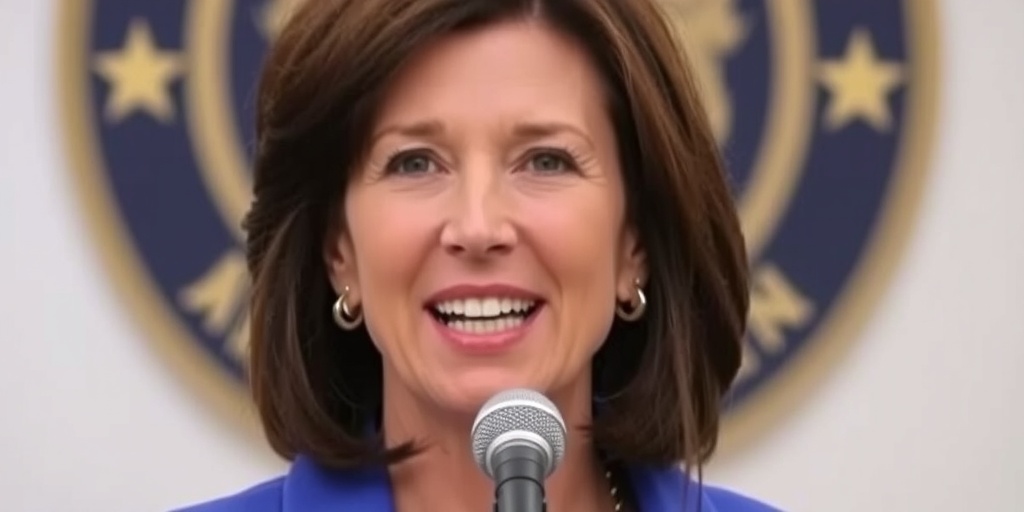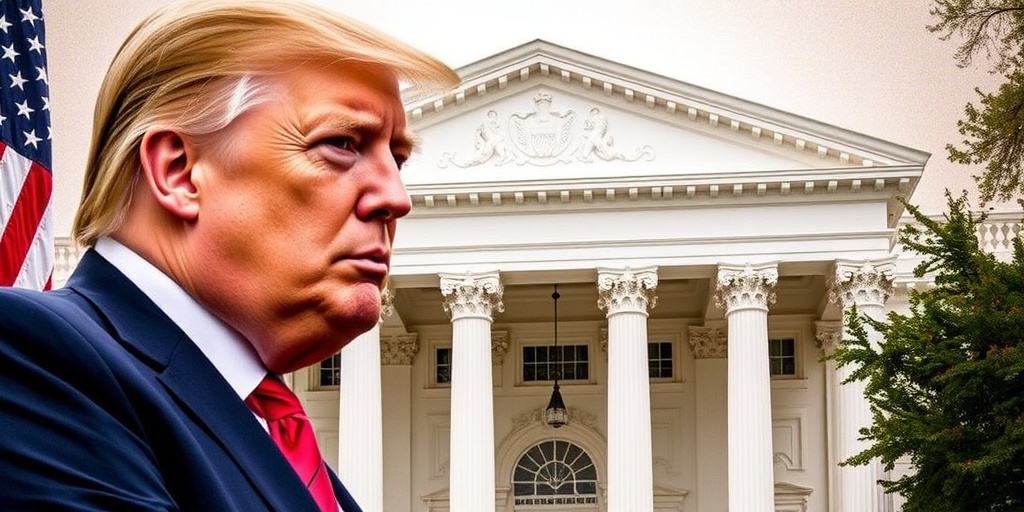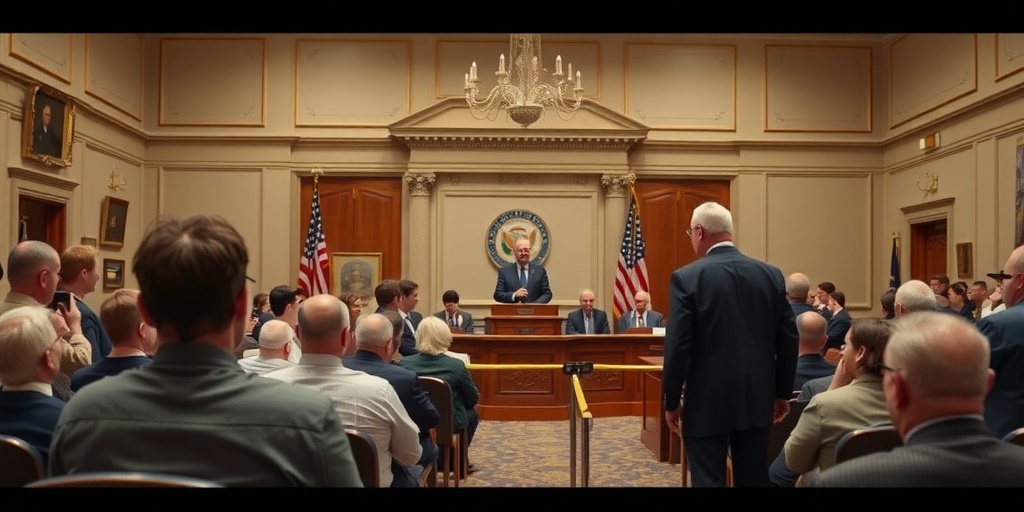Now Reading: Kristi Noem Sends Troops to Border, Ignores Flood Victims in South Dakota
-
01
Kristi Noem Sends Troops to Border, Ignores Flood Victims in South Dakota
Kristi Noem Sends Troops to Border, Ignores Flood Victims in South Dakota

Controversy Surrounds Gov. Kristi Noem’s Handling of South Dakota Flooding Disaster
In the wake of a devastating flood that struck southeastern South Dakota last summer, Governor Kristi Noem’s decision-making has drawn substantial criticism. While homes and businesses bore the brunt of historic flooding, the governor’s choice not to deploy the National Guard has shocked many residents and state lawmakers. With thousands affected by the disaster, calls for help intensified, but Governor Noem defended her action by arguing that the National Guard should only be mobilized for “true crises” and that doing so during the flooding would incur excessive costs.
During a June news conference in Yankton, Noem emphasized the need to be prudent with military resources: “We have to be wise with how we use our soldiers.” This statement ignited outrage, especially from those who noted the stark contrast between her response to the flooding in South Dakota and her swift moves to deploy Guard troops to the U.S.-Mexico border earlier in her tenure. Critics have pointed out this inconsistency, particularly in light of the millions spent on these border deployments while the governor neglected to provide aid in-state.
One of the immediate consequences of Noem’s inaction was a delay in federal assistance. The flooding had devastating effects, with homes, including that of Chris Antonopoulos, reduced to rubble. Antonopoulos recounted that in past incidents, the National Guard had been instrumental in local flood disaster responses, specifically through sandbagging efforts. “If the National Guard had been deployed for this event to assist with mitigation,” he stated, “I am 100 percent confident it would have prevented the damage to my parents’ home.” He labeled Noem’s response as a failure, arguing that the government had let down its citizens when they needed support the most.
The criticism did not stop there. Many local residents were disappointed to see the governor focused on national campaigning for then-President Donald Trump instead of addressing the emergent needs of flood victims at home. In addition, it took Noem more than a month following the flooding to request federal disaster aid, raising questions about her urgency and commitment to her constituents. Questions loomed over whether more immediate action could have alleviated the struggles faced by those affected by the catastrophe.
When she finally submitted a request for federal aid on July 26, local officials argued that this delay hampered timely assistance to the communities. While she was seeking federal support, other states—like Iowa and Minnesota—quickly requested aid, which brought immediate responses and assistance. In contrast, South Dakota remained the sole affected state without Guard intervention, amplifying sentiment of negligence regarding the state’s disaster relief efforts compared to her peers.
The handling of state resources during this time has also prompted scrutiny. Critics like former lawmaker Linda Duba noted that the state has a disaster relief fund intended for situations like the flooding but suggested Noem could have tapped into these resources for local aid, including National Guard deployment. Duba stated that historically, this funding covered domestic disasters as opposed to border missions, which Noem had redirected since taking office.
Further complicating her approach, the governor came under fire for accepting a $1 million private donation from Tennessee billionaire Willis Johnson to subsidize the costs of deploying Guard troops to the Texas border. This instance raised concerns over prioritizing deployments for political narratives over the urgent needs of South Dakota residents during domestic crises.
Despite her handling of the flood response leading to intense scrutiny, Noem has continued to assert that the presence of the National Guard at the border is vital for her state’s safety. In a January 2024 address to the South Dakota legislature, she claimed that issues related to border security, including drug trafficking and cartel activities, had direct repercussions on the local communities in her state.
After the flood response, even as the National Guard’s role was under the microscope, Jeff Dooley, North Sioux City’s administrator, mentioned the complexity of mobilizing the National Guard during rapidly changing disaster conditions. “In hindsight, it’s easy to say ‘I should’ve done this or that,’ but the situation was evolving too fast to make those decisions at the same time,” Dooley said.
As she prepares for her Senate confirmation hearing amid this controversy, Noem’s handling of both border security and disaster management at home is expected to be a focal point. With significant criticism regarding her priorities laid bare, citizens and legislators from both sides of the aisle are left to ponder the implications for future governance in times of crisis.
Stay Informed With the Latest & Most Important News
Previous Post
Next Post
-
 01New technology breakthrough has everyone talking right now
01New technology breakthrough has everyone talking right now -
 02Unbelievable life hack everyone needs to try today
02Unbelievable life hack everyone needs to try today -
 03Fascinating discovery found buried deep beneath the ocean
03Fascinating discovery found buried deep beneath the ocean -
 04Man invents genius device that solves everyday problems
04Man invents genius device that solves everyday problems -
 05Shocking discovery that changes what we know forever
05Shocking discovery that changes what we know forever -
 06Internet goes wild over celebrity’s unexpected fashion choice
06Internet goes wild over celebrity’s unexpected fashion choice -
 07Rare animal sighting stuns scientists and wildlife lovers
07Rare animal sighting stuns scientists and wildlife lovers





















